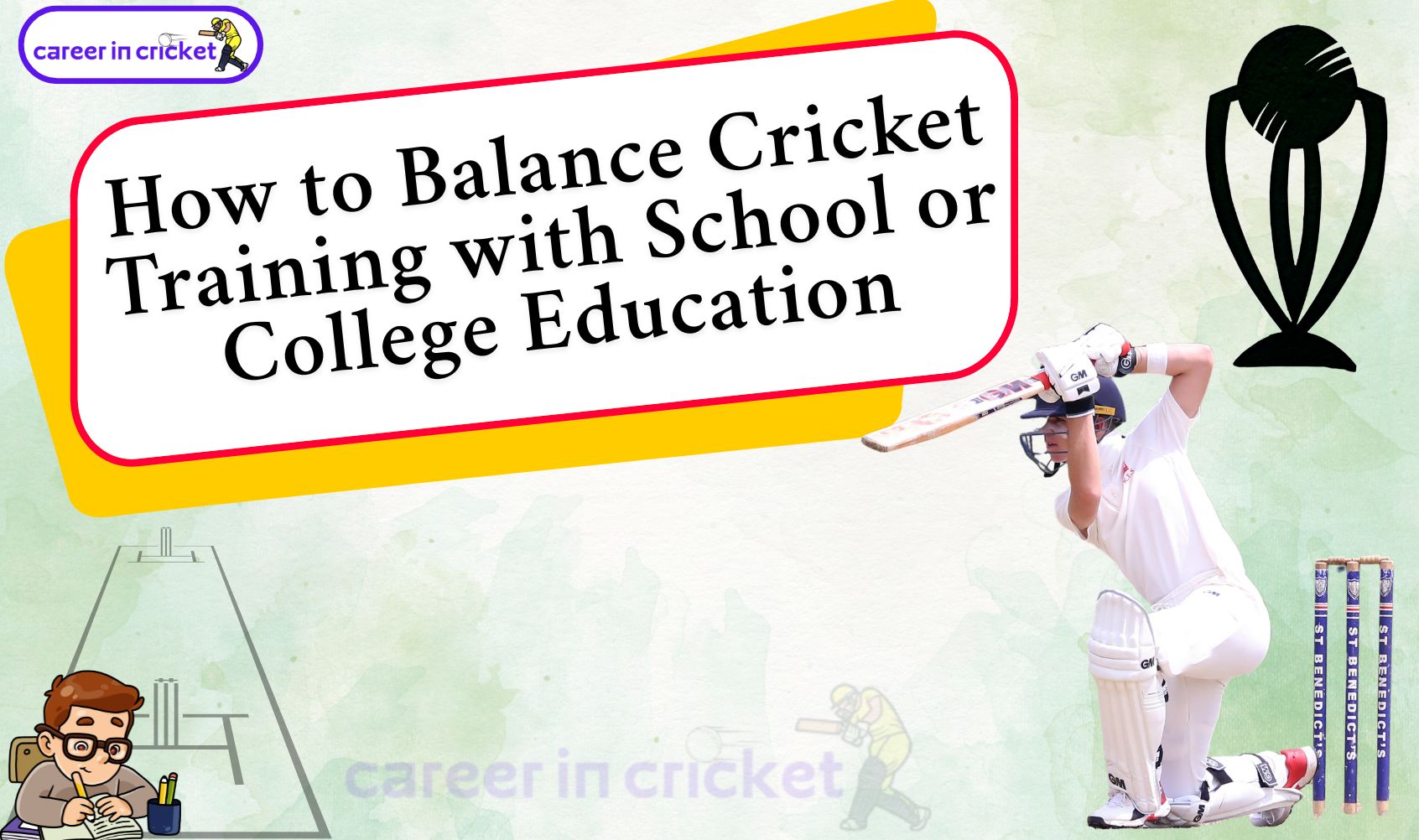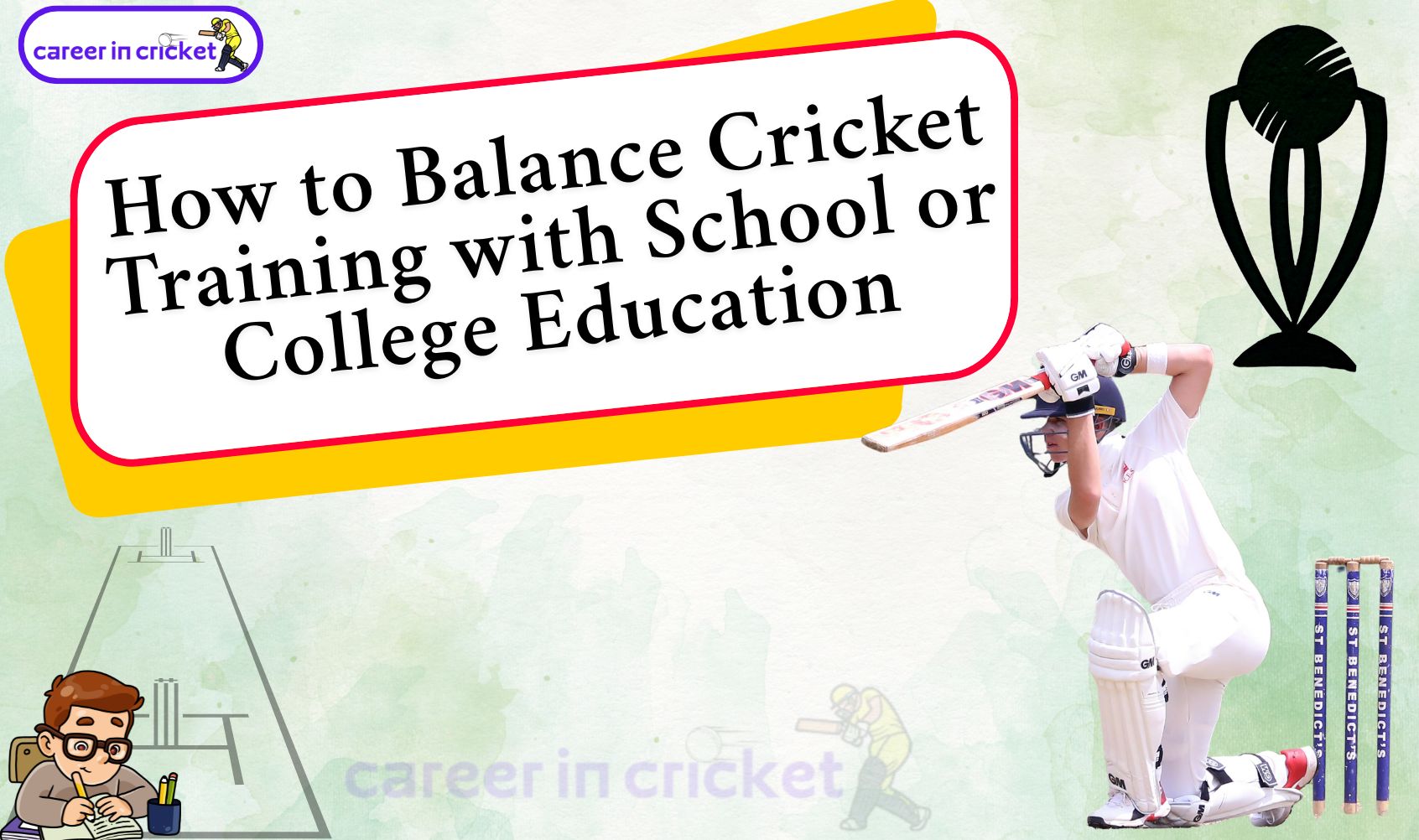Balancing your passion for cricket with your academic responsibilities can feel tough, especially when both demand time, focus, and energy. But if you dream of becoming a successful cricketer while also building a strong educational foundation, time management and discipline are key.
Whether you're in school or college, this blog will help you understand how to manage both your cricket training and academics without burning out. Many successful Indian cricketers — like Rahul Dravid, Ravichandran Ashwin, and KL Rahul — have excelled both on the field and in the classroom. With the right approach, you can too.
Also Read: How to Play the Cover Drive Correctly
Why Is Balancing Cricket and Education Important?
While cricket might be your dream career, education is your safety net and support system. It improves your decision-making, communication, and mental strength — qualities that also make you a better cricketer.
Here’s why maintaining both is essential:
Backup career options if cricket doesn’t work out
Helps in understanding game strategies (analytical thinking)
Builds discipline and time management skills
Makes you a more complete and confident individual
Common Challenges Faced by Student Cricketers
Lack of time for studies due to practice or tournaments
Missed classes and assignments
Physical and mental fatigue
Pressure from parents or teachers
Difficulty in maintaining social life
These challenges are real, but they can be managed with the right plan.
10 Practical Tips to Balance Cricket Training and Academics
1. Create a Realistic Timetable
Design a weekly schedule that includes:
School/college hours
Cricket practice and matches
Study time
Rest and recovery
Keep it flexible but consistent. Use mobile apps or planners to stay on track.
2. Set Clear Priorities
Know your academic goals and cricket goals. During exam season, reduce training hours slightly. During tournaments, inform your teachers in advance and plan to study during travel breaks.
3. Talk to Your Teachers and Coaches
Maintain open communication. Most teachers and coaches will support you if they see your sincerity. Request extra classes, notes, or early practice sessions when needed.
4. Utilize Early Mornings and Evenings Wisely
Morning hours are great for cricket practice or revision. Avoid wasting evenings on distractions. Even 1-2 focused hours daily can help you stay ahead in studies.
5. Make Use of Online Learning Tools
If you miss classes or fall behind, use:
YouTube channels for subject tutorials
Educational apps like Byju’s, Unacademy, or Khan Academy
Recorded lectures from your institution (if available)
6. Study in Short, Focused Sessions
Use the Pomodoro Technique — study for 25 minutes, then take a 5-minute break. Repeat 3–4 times. This helps maintain concentration without mental fatigue.
7. Stay Fit and Eat Healthy
Balancing both worlds requires energy. Eat well-balanced meals, stay hydrated, and get 7–8 hours of sleep. Avoid junk food and too much screen time at night.
Also Read: The Importance of Fitness in Cricket
8. Use Travel Time Smartly
If you travel to matches or coaching, carry flashcards, notes, or listen to audio lessons. Travel time can be turned into productive revision time.
9. Stay Mentally Strong
It’s normal to feel tired or stressed. Talk to your parents, friends, or a mentor. Take short breaks when needed but don’t give up.
You can also book your free 30-minutes counselling session with us at Career in Cricket.
10. Take One Day Off Weekly
Avoid burnout. Keep one day to relax, meet friends, or do something fun. Your body and mind need recovery too — just like in cricket.
Success Story: Inspiration from Cricketers Who Did It
Rahul Dravid: Graduated in commerce while playing domestic cricket. Now a coach and respected thinker of the game.
KL Rahul: Balanced college and cricket before making it big.
Ravichandran Ashwin: An engineering graduate who later became one of India’s top all-rounders.

Academic Boards Supporting Student Athletes
Several educational boards and universities in India are becoming more flexible and supportive toward student-athletes. Some allow:
Attendance relaxation
Special exam arrangements
Sports quota admissions
Make sure to check with your school or college for such policies.
Final Thoughts
Balancing cricket and academics is challenging — but not impossible. With passion, discipline, and planning, you can grow in both. Remember, cricket teaches you focus, teamwork, and patience — the same qualities needed in academics.
“Don't drop the bat or the books — carry both with pride.”
? Your Journey Starts Now
If you're serious about your cricket and education, start organizing your time, ask for support when needed, and stick to your routine. Great cricketers are not just born on the field, but also shaped in classrooms and coaching nets.
Stay dedicated, and success will follow — in both exams and innings.













